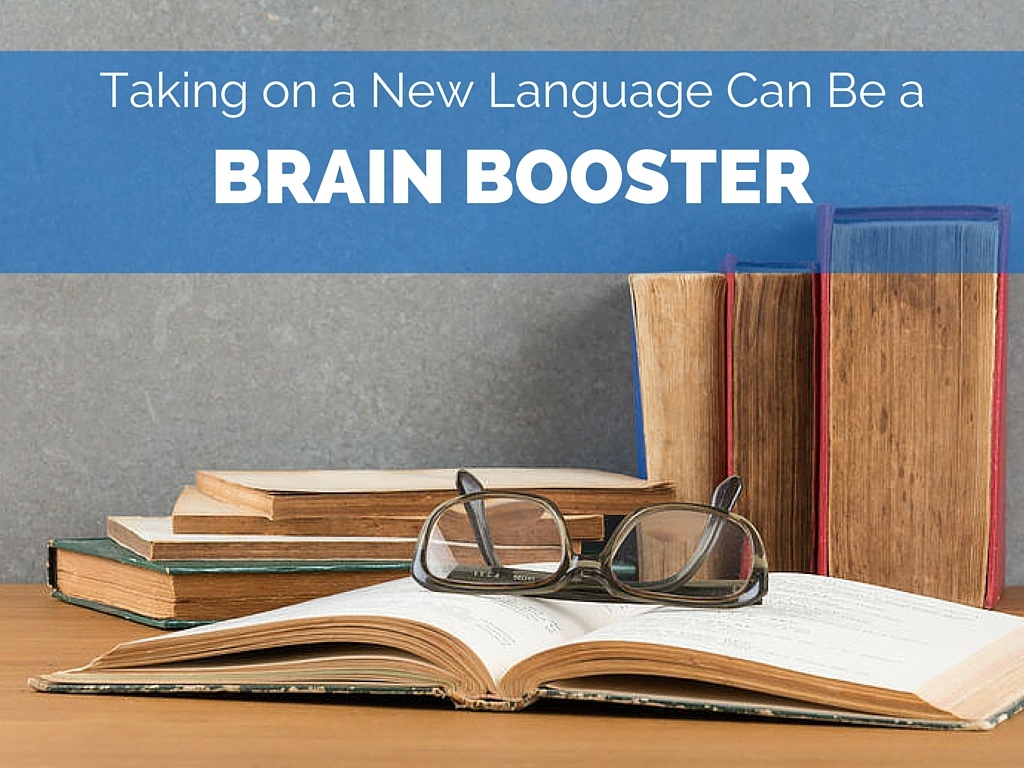
There are numerous sayings about old dogs and new tricks—on both sides of the fence when it concerns the possibility of teaching those new tricks successfully. It's the same with humans. Experts in senior health insist that older citizens can keep on learning, and they should take every opportunity to do so. But, it's not always easy. Ask any teenager who becomes exasperated with a grandparent trying to deal with a smart phone or a personal computer.
For a lot of history, it was assumed that the human brain developed to a certain capacity and then shut itself off to further learning. Science now suggests quite the opposite. Today, it is almost universally acknowledged that brain fitness can, and should, be prolonged well into the senior years. New tricks, new ideas, new languages and new experiences are the means by which today's seniors can remain interested in life and interesting to others.
Grow Your Brain with Language
The "plasticity" of the brain has been demonstrated by a number of studies. There is ample evidence, collected since the 1960s, to prove that brain function is enhanced through use, and that responding to new experiences and situations (i.e. learning) can actually enlarge and even heal the brain. The problem, however, is that neuroplasticity tends to decrease with age, leading to a loss of memory and cognitive function.
This decrease, in terms of attention and perception, may be exhibited as the onset of dementia and Alzheimer's, according to researchers. One of the best ways to combat cognitive decline, according to a study at the University of Edinburgh, is to learn another language.
To put it bluntly: Yes, it is possible to teach old dogs new tricks, even though it may be a bit more difficult to do so.
Benefits of Bilingualism
The benefits of learning another language have nothing to do with need, and it matters little whether you brush up on your college French in order to decipher dishes on a restaurant menu, or learn a few phrases in Portuguese, Italian and Spanish before embarking on a tour of the Mediterranean. The brain boost can be lasting, whether you only use the second language to read poetry or you speak it weekly in a social setting. In terms of senior health, that smattering of foreign words can lead to increased activity in specific areas of the brain, a better grasp of logical and analytical reasoning, and more balanced emotional responses to various situations.
While learning another language does not necessarily make anyone smarter, there is some evidence to suggest that multi-linguals score higher on standardized tests; there is a substantial body of evidence, however, to suggest that studying a new language later in life can delay the onset of dementia by as much as five years.
A Multi-Faceted Approach
Learning a new language can be overwhelming, but it can also be fun. Few experts suggest that seniors ought to embark on a study of classic Greek, or endeavor to become proficient in writing Chinese characters. But, who can dispute the value of learning some basic phrases before taking a trip to Tuscany, Provence, Quebec or Costa Rica? Today, there are conversational classes designed to help travelers read signs, ask directions, and order from a menu. In the same vein, think what fun you could have reading Le Petit Prince to your grandchildren in its original French, perhaps sowing the seeds of bilingualism at an early age.
There are a multitude of ways to enhance your lifestyle and approach your retirement years. Remember, though, that senior health is not only a physical concern, but an emotional and mental journey as well. Make it a good trip!












